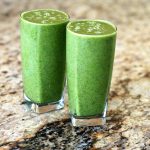While often overlooked in mainstream discussions about healthy eating, mushrooms are indeed nutritional powerhouses packed with a myriad of health benefits. From boosting immunity and supporting heart health to promoting cognitive function and aiding in weight management, mushrooms offer a wealth of nutrients and bioactive compounds that can positively impact overall well-being.
In this article, we delve into the remarkable health benefits of mushrooms, uncovering their hidden potential as a versatile and nutrient-rich addition to your diet. Join us on a journey through the fascinating world of mushrooms and discover how incorporating these fungi into your meals can elevate your health to new heights.
Mushrooms are fungi that belong to the kingdom Fungi, characterized by their fleshy texture, distinctive shapes, and earthy flavors. They come in a wide variety of species, sizes, colors, and textures, ranging from small button mushrooms to large portobellos and exotic varieties like shiitake, oyster, and lion’s mane.
In nature, mushrooms typically grow in damp, dark environments, often appearing on decaying organic matter such as dead trees, logs, or forest floors. They play essential roles in ecosystems by decomposing organic material and recycling nutrients, contributing to soil health and biodiversity.
From a culinary perspective, mushrooms are prized for their unique flavors and versatility in cooking. They can be enjoyed raw or cooked and incorporated into a wide range of dishes, including soups, stir-fries, salads, pasta dishes, and more. Mushrooms add depth and richness to recipes, making them a favorite ingredient in cuisines around the world.
In addition to their culinary appeal, mushrooms boast impressive nutritional profiles. They are low in calories and fat, yet rich in essential nutrients such as protein, fiber, vitamins (including B vitamins like riboflavin, niacin, and pantothenic acid), minerals (such as selenium, potassium, and copper), and antioxidants. Some varieties of mushrooms also contain unique bioactive compounds with potential health benefits, including beta-glucans, polysaccharides, and ergothioneine.
Overall, mushrooms are not only delicious and versatile but also offer a range of potential health benefits, making them a valuable addition to a balanced and nutritious diet. Whether enjoyed for their culinary appeal or their potential health-promoting properties, mushrooms are truly a remarkable gift from nature.
Health Benefits of Eating Mushrooms
Eating mushrooms offers a plethora of specific health benefits, thanks to their unique nutritional composition and bioactive compounds. Here are some notable health benefits of incorporating mushrooms into your diet:
- Immune Support: Mushrooms contain beta-glucans and other polysaccharides, which have been shown to support immune function by enhancing the activity of immune cells and promoting the production of cytokines that help regulate immune responses. Regular consumption of mushrooms may help strengthen the immune system and reduce the risk of infections.
- Heart Health: Certain varieties of mushrooms, such as shiitake and maitake, contain compounds like beta-glucans and eritadenine, which have been linked to lower cholesterol levels and improved heart health. Consuming mushrooms as part of a balanced diet may help lower LDL cholesterol levels, reduce inflammation, and support cardiovascular health.
- Antioxidant Protection: Mushrooms are rich in antioxidants, including selenium, vitamin C, and various polyphenols, which help neutralize harmful free radicals in the body and protect cells from oxidative damage. Antioxidants play a crucial role in reducing the risk of chronic diseases, such as cancer, heart disease, and neurodegenerative disorders.
- Brain Health: Some mushrooms contain compounds like erinacines and hericenones, found in lion’s mane mushrooms, which have been studied for their potential neuroprotective effects. These compounds may help stimulate nerve growth factor (NGF) production and support brain health, memory, and cognitive function.
- Weight Management: Mushrooms are low in calories and fat but high in fiber, making them a nutritious and filling addition to meals. Incorporating mushrooms into your diet can help increase satiety and reduce overall calorie intake, which may support weight management and help prevent overeating.
- Blood Sugar Regulation: Certain types of mushrooms, such as maitake and reishi, contain compounds that may help regulate blood sugar levels and improve insulin sensitivity. These mushrooms may be beneficial for individuals with diabetes or those at risk of developing insulin resistance.
- Digestive Health: Mushrooms are a good source of dietary fiber, which promotes digestive health by supporting regular bowel movements, preventing constipation, and feeding beneficial gut bacteria. Additionally, certain mushrooms, like shiitake, contain compounds that have prebiotic effects, promoting the growth of beneficial probiotic bacteria in the gut.
Incorporating a variety of mushrooms into your diet can provide a wide range of health benefits, supporting overall well-being and vitality. Whether enjoyed raw, cooked, or as supplements, mushrooms offer a delicious and nutritious way to boost your health and enhance your diet.
Easy Ways to add Mushrooms to your Overall Diet
Incorporating mushrooms into your diet can be both easy and delicious! Here are some simple ways to add mushrooms to your meals:
- Sautéed Mushrooms: Sauté sliced mushrooms in a bit of olive oil or butter with garlic, onions, and your favorite herbs and spices. Enjoy them as a side dish, or use them as a topping for burgers, sandwiches, omelets, or pizzas.
- Stuffed Mushrooms: Remove the stems from large mushroom caps and fill them with a mixture of breadcrumbs, cheese, herbs, and other fillings of your choice. Bake until golden and bubbly for a delicious appetizer or side dish.
- Mushroom Stir-Fry: Add sliced mushrooms to your favorite stir-fry recipe along with other vegetables, tofu, chicken, or shrimp. The mushrooms will soak up the flavors of the sauce and add a meaty texture to the dish.
- Mushroom Pasta: Sauté mushrooms with garlic and onions, then toss them with cooked pasta and a splash of olive oil or cream sauce. Top with fresh herbs and grated cheese for a quick and satisfying meal.
- Mushroom Soup: Make a comforting mushroom soup by sautéing mushrooms with onions, garlic, and thyme, then simmering them in vegetable or chicken broth until tender. Blend until smooth and creamy for a hearty and nutritious soup.
- Grilled Mushrooms: Marinate whole mushrooms in a mixture of olive oil, balsamic vinegar, garlic, and herbs, then grill them until tender and charred. Serve as a side dish or add them to salads, sandwiches, or grain bowls.
- Mushroom Tacos or Quesadillas: Sauté mushrooms with onions and bell peppers, then use them as a filling for tacos or quesadillas along with beans, cheese, salsa, and avocado. Top with cilantro and lime juice for a fresh and flavorful meal.
- Mushroom Breakfast: Add sautéed mushrooms to your morning omelet, frittata, or scrambled eggs for a nutritious and filling breakfast. You can also use them as a topping for toast or incorporate them into breakfast burritos or sandwiches.
These are just a few ideas to get you started, but the possibilities are endless when it comes to incorporating mushrooms into your diet. Get creative and experiment with different varieties and cooking methods to find your favorite ways to enjoy these versatile and nutritious fungi!
Mushrooms are not only delicious but also incredibly nutritious additions to any diet. Packed with vitamins, minerals, antioxidants, and other bioactive compounds, mushrooms offer a wide range of health benefits, from supporting immune function and heart health to promoting brain health and weight management. Their versatility in cooking makes it easy to incorporate them into a variety of dishes, from soups and stir-fries to salads and sandwiches. Whether enjoyed as a savory side dish, a hearty main course, or a flavorful topping, mushrooms provide a flavorful and nutrient-rich boost to any meal. Embracing the nutritional power of mushrooms is not only a delicious choice but also a smart one for overall health and well-being. So next time you’re planning your meals, don’t forget to add a dose of mushroom goodness for a flavorful and nutritious culinary experience.
Sources:
https://health.clevelandclinic.org/benefits-of-mushrooms
https://www.uclahealth.org/news/7-health-benefits-of-mushrooms
https://www.health.com/mushrooms-benefits-7971431









